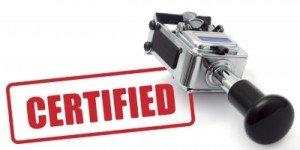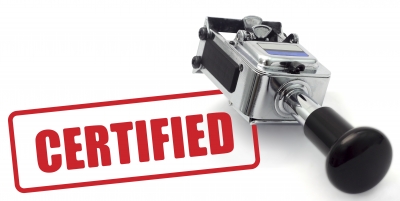 THE Philippine Bureau of Customs (BOC) has begun implementing the ASEAN Second Pilot Project on regional self-certification, which allows exporters from participating Association of Southeast Asian Nations members to self-declare their goods without presenting a certificate of origin.
THE Philippine Bureau of Customs (BOC) has begun implementing the ASEAN Second Pilot Project on regional self-certification, which allows exporters from participating Association of Southeast Asian Nations members to self-declare their goods without presenting a certificate of origin.
The BOC issued Customs Administrative Order 06-2013 dated Dec. 12, 2013, which implements Executive Order No. 142, issued by President Benigno Aquino on Oct. 14, 2013.
EO No. 142, “Implementing the Memorandum of Understanding among the Governments of Participating Member States of the ASEAN on the Second Pilot Project for the Implementation of a Regional Self-Certification System,” allows certified exporters to self-declare that their products have satisfied the ASEAN Trade in Goods Agreement (ATIGA) Rules of Origin (ROO).
That does away with the need for exporters to present a certificate of origin (Form D) in claiming tariff preferences.
Aquino said the ROO plays a crucial role in achieving a free flow of goods within the ASEAN single market, which will be in place in 2015.
A certified exporter is a producer or manufacturer duly authorized by the BOC to make out an Invoice Declaration on the origin of a good exported.
The Second Pilot Project is under the direct supervision of BOC’s Assessment and Operations Coordinating Group, which would determine or approve participating exporters and grant the status of certified exporter.
The BOC will conduct orientation seminars for exporters and importers on the implementation of the project.
CAO 06-2013 states that the pilot project covers originating goods of qualified manufacturers/producers exporting to and importing from the participating countries.
For importations, the second pilot project will be implemented in all ports.
For exportations, the project is limited initially to the Port of Manila, Manila International Container Port, and Ninoy Aquino International Airport, “without prejudice to the extension of this pilot project to all other ports within six months of its effective implementation”.
Exporters who want to apply for a certified exporter status must have been exporting products to any ASEAN country for at least a year, have knowledge and competence in the ROO and have undergone training on the implementation, and be a legitimate manufacturer or producer.
Accreditation as certified exporter may be revoked if the exporter no longer offers the guarantees and fulfills the conditions and violates the order, according to CAO 06-2013.
Certified exporters found in breach of these conditions may be suspended for three months for the first offense, six months for the second and revocation of accreditation for the third.
The order is applicable to exporters from other ASEAN member countries that may accede to the MOU, the order stated.
The MOU on the Second Pilot Project was signed on Aug. 29, 2012 by the Philippines, Indonesia and Laos, in preparation for the development and putting into operation of an ASEAN-wide self-certification system by 2015.
The order, issued by Customs Commissioner John P. Sevilla and Finance Secretary Cesar V. Purisima, took effect immediately. — Roumina Pablo
Image courtesy of Naypong / FreeDigitalPhotos.net





